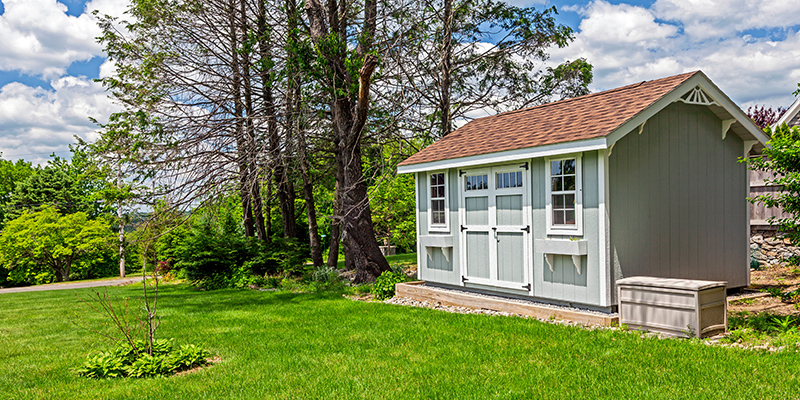11 Things To Know Before Moving Into An HOA Community

Buying a home is one of the most significant investments you can make, so it only makes sense to look into every aspect of the process. This is especially true when it comes to purchasing a home in an HOA community.
Browse By Category
Sign up for Our Newsletter
Buying a home is one of the most significant investments you can make, so it only makes sense to look into every aspect of the process. This is especially true when it comes to purchasing a home in an HOA community.
What You Should Know About Living in an HOA Community
Homeowners associations are everywhere. In fact, as of 2019, there were more than 350,000 community associations in the United States alone. And, considering their positive effect on property values, it is easy to see why so many people choose to live in such neighborhoods.
Unfortunately, HOA living is not everyone’s cup of tea. There are many HOA horror stories out there, though not all of them are substantiated. But, how do you know whether living in an HOA community suits you if you are not familiar with how they work?
Here are the most important things you should know about homeowners associations.
1. They Come in Many Forms
A homeowners association is a private organization that exists to enforce rules with the primary objective of preserving property values. It can take many forms, including but not limited to single-family home communities, condo associations, townhome communities, housing cooperatives, and other planned developments.
Before you buy a home or condo unit, the seller will let you know that you are also buying into a community association. You will then receive all pertinent documents, including the association’s bylaws and CC&Rs, so that you can review them for yourself. Some buyers back out of a sale because they dislike how an HOA is run.
2. And Serve a Good Purpose
Homeowners associations have the general aim of protecting property values. These associations achieve this through careful and tireless maintenance of common areas as well as enforcing rules.
Naturally, as a homeowner, you would want to keep the value of your property high. That way, you can sell your home for a much higher price than you originally paid. Real estate has its ups and downs, but having an HOA around can help ensure values stay up.
3. There Are Rules to Follow
Every HOA community has a set of covenants and rules that exist within their governing documents. Common examples of homeowners association rules include:
 Property restrictions such as what color you can paint your house, how high your fences should be, etc.
Property restrictions such as what color you can paint your house, how high your fences should be, etc.- Occupancy limits
- Rental restrictions
- Vehicle and parking restrictions
- Pet rules
- Noise rules
- Holiday decoration rules
A lot of people consider this a drawback and, to some extent, it is. But, in the grand scheme of things, rules serve a significant purpose. Associations put rules in place to maintain order and protect the curb appeal of the neighborhood.
For instance, a single neon pink house would certainly stand out and be an eyesore to a row of muted browns. A resident who likes to throw parties that go on until the wee hours of the morning can be a nuisance. The same goes for pets that bark into the night or destroy beautifully landscaped lawns.
Of course, there is such a thing as unenforceable HOA rules. These are rules that were improperly enacted, are inconsistently enforced, violate the law and the rights of homeowners, and are outside of the board’s authority.
4. And Consequences for Rule Breakers
When you first move into an HOA community, you agree to abide by its rules and covenants. But, like many quasi-governmental organizations, HOAs are no stranger to rule breakers.
As a way to discourage breaches and punish offenders, most associations impose penalties when residents break the rules. These punishments can vary in nature and severity, often ranging from simple warning letters and monetary fines to the suspension of privileges. Some associations even go as far as placing liens on a homeowner’s property and subsequently initiating foreclosure proceedings.
Make sure to check your association’s governing documents to learn what the consequences are in your community. Most HOAs also have an appeals process you go through before the punishment is finalized.
5. You Need to Pay HOA Fees (Possibly More)
As a member of an HOA community, you have to pay regular dues. These dues go into the HOA’s account, which the association uses to fund the cost of maintaining the community. The HOA board calculates how much to charge each homeowner by first coming up with an annual budget. This budget contains the coming year’s anticipated expenses as well as reserve contributions.
Homeowners association fees can vary drastically from one community to another. Factors such as location, the size of the community, and the nature of your common areas can affect the cost of fees. For example, an HOA with many amenities will naturally need more money for maintenance than an HOA with only a few amenities.
Apart from HOA dues, you should also expect to pay special assessments every once in a while. Associations levy special assessments when an emergency or unanticipated expenses crop up. Some associations even charge such assessments for much less. Your HOA’s governing documents, though, should cover when and how much your association can charge in special assessments. Many states also have laws that regulate this.
6. You Likely Have Maintenance Responsibilities
A lot of people think that living in a community run by an HOA means never having to worry about maintenance again. And, in some cases, that is true. But, there are many associations that clearly define what maintenance tasks the HOA is responsible for and what homeowners are responsible for.
For example, an association may have the responsibility of maintaining the landscaping in common areas but not when it comes to individual homes. In that case, you will need to take care of your own lawn. Home maintenance will also likely fall on your shoulders.
Additionally, many associations require you to maintain your home on a regular basis. That means no chipping paint on house exteriors, loose or damaged roof shingles, and dirty driveways.
7. And Processes for Everything
Homeowners associations thrive on structure and order, usually in the form of formal procedures and standard processes. As a homeowner, you will need to follow these procedures to the letter if you want to get something done.
For example, if you want to build a shed or make any home improvements, you will likely need to go through an architectural approval process. If you want to rent out your home, there is probably a process for that, too. Other examples include processes for filing disputes or complaints, adopting pets, and flying drones. Of course, some processes, such as requesting documents, have been simplified with the creation of homeowners associations websites.
8. Many Have Great Amenities
Perhaps one of the most alluring benefits of living in an HOA is having access to all sorts of great amenities. Many associations offer a variety of amenities available exclusively to members of the community. These amenities can vary from association to association, but examples of amenities include:
- Indoor and outdoor swimming pools
- Clubhouses
 Gyms or fitness centers
Gyms or fitness centers- Tennis courts
- Golf courses
- Private parks
- Pet parks
- Playgrounds
- Community gardens
- Meeting rooms or co-working spaces
9. And Social Events
In homeowners associations, there is often an emphasis on “community.” Associations strive to instill a sense of belonging and an overall feeling of camaraderie among residents. To do this, they hold social events so that neighbors can get to know each other better. It also promotes community involvement in HOA matters. When you move into an HOA community, expect a certain level of socialization.
10. Boards Run the Show
When it comes down to it, homeowners associations operate sort of like a government. And, leading the charge for every HOA is a board of directors. This HOA board is responsible for enforcing rules, collecting dues, resolving disputes, and communicating with residents. The board also enacts policies, plans the budget, and deals with just about anything that has to do with the association.
HOA community management, though, is not easy. Most board members also lead personal and professional lives outside of the HOA, making it hard for them to divide their time. Because of this, a lot of communities hire an HOA management company. When you move into an HOA community, it helps to get to know your board and the HOA manager.
11. But You Have a Voice, Too
The board may be responsible for a lot of things, but that does not mean they hold limitless power. As a member of your community HOA, you hold some power as well. If you dislike how the board is running the association, bring it up during a meeting or talk to your board privately. You can also join a committee or run for a position on the board to make a more impactful change.
Make the Decision
Living in an HOA community is not for everyone. The rules and monthly dues often put people off to the idea. But, you must recognize that both of these things contribute to the preservation of property values. If you can live with these obligations, you can expect to reap the benefits of association living. In the end, the choice is yours.
Are you already part of a homeowners association that is struggling with HOA management? Worry no more! Look for the best HOA management company in your area today using our online directory.
RELATED ARTICLES:
- What Is HOA Or Homeowners Association?
- HOA Social Committee Ideas For Your Community
- How To Deal With Bad Neighbors In An HOA Community
Trending Now
Related Article
Sign up for Our Monthly Newsletter
Sign up below for monthly updates on all HOA Resource

















